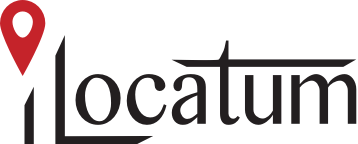AI vs. Human Recruiters: What’s the Future of Talent Acquisition?

The debate around Artificial Intelligence (AI) replacing human recruiters has moved from theoretical discussions into practical reality this year. Companies such as Amazon and IBM have already begun integrating advanced AI-driven recruitment technologies into their hiring processes, significantly reshaping the talent acquisition landscape (Forbes). This shift reflects a broader trend of businesses seeking greater efficiency and consistency in their recruitment practices, driven by a competitive labor market and evolving technological capabilities.
AI in Recruitment
AI recruitment tools offer several clear advantages. For instance, they can rapidly analyze thousands of applications, screening candidates based on predefined criteria and reducing the initial workload for human recruiters. This capability enables hiring teams to focus more deeply on higher-value tasks like interviewing, building relationships, and assessing nuanced qualities that AI algorithms still struggle to evaluate effectively.
Despite this technological revolution, however, human recruiters remain indispensable. A recent comprehensive analysis by Deloitte emphasized that while AI excels at automating repetitive tasks and initial candidate screenings, it falls short in critical areas such as evaluating candidates’ soft skills, emotional intelligence, and cultural fit within a company (Deloitte). These areas continue to rely significantly on human intuition and experience, underscoring the complementary rather than competitive relationship between humans and AI.
AI-Driven Hiring
This year has also seen increased scrutiny over AI-driven hiring tools. One high-profile lawsuit alleged that a prominent technology company’s AI screening software systematically discriminated against certain groups of applicants (Reuters). This incident brought renewed attention to the potential ethical pitfalls of relying heavily on AI without sufficient oversight. Legal experts and HR professionals alike have called for stricter regulatory guidelines and increased human oversight to mitigate the risks of bias and discrimination inherent in algorithm-driven decision-making.
Furthermore, AI has evolved to serve a supportive rather than substitutive role. LinkedIn recently launched an advanced AI-powered assistant explicitly designed to enhance rather than replace recruiters. This technology automates tasks like scheduling interviews, managing candidate communications, and providing predictive analytics on candidate suitability. Recruitment teams have reported significant improvements in their productivity and effectiveness, demonstrating how AI can seamlessly integrate into traditional hiring processes.
At the heart of the talent acquisition debate is the candidate experience. Gartner’s recent survey found that candidates significantly prefer human interaction throughout their job-seeking process, emphasizing personalized attention, genuine engagement, and empathetic communication as decisive factors influencing their decision to join a company. This underscores a vital limitation of AI, which, despite becoming more sophisticated, remains inherently impersonal.
Companies are beginning to acknowledge this limitation by adopting hybrid recruitment models that leverage the strengths of both AI and human recruiters. Such models position human recruiters as strategic decision-makers and relationship builders, while AI tools support and enhance their capabilities. Firms that have successfully implemented this approach report increased candidate satisfaction, higher-quality hires, and more effective resource utilization.
Will AI Replace Human Recruiters?
The evolving role of recruiters in this AI-enhanced landscape also presents new skill requirements for talent acquisition professionals. Recruiters are increasingly expected to become proficient in interpreting data analytics generated by AI, leveraging insights to refine recruitment strategies, and continuously updating their skills to keep pace with technological advancements. The hiring function is shifting toward a model that requires recruiters not only to possess strong interpersonal and interviewing skills but also analytical capabilities and technological literacy.
Looking forward, the integration of AI and human recruiters will continue to evolve dynamically. Companies embracing a balanced approach are more likely to succeed in the competitive talent acquisition landscape. By strategically combining the speed, consistency, and scalability of AI with the judgment, empathy, and nuanced understanding of human recruiters, businesses can create a powerful and responsive recruitment model.
Ultimately, the future of talent acquisition lies in harnessing the complementary strengths of both AI and human intelligence, achieving a balance that enhances organizational competitiveness and adaptability in an ever-changing job market.
Other Insights
Explore Our
Inspiring Journey
Uncover iLocatum’s core values and witness the evolution of our unwavering commitment to excellence. Explore how our profound history shapes our dedication to delivering impactful solutions across diverse industries.
